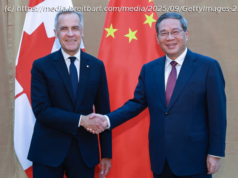The US president says Beijing could ‘easily’ stop Kim Jong-un’s nuclear weapons programme, leading some to wonder if Beijing is being sincere with Washington
Nothing is a bigger threat to world peace since the defeat of Nazism in the second world war than North Korea’s missile and nuclear programme.
And nothing would be a bigger failure of post-war global diplomacy than if a seemingly united world failed to stop a rogue state from making trouble.
This became evident when North Korean dictator Kim Jong-un declared his ambitious nuclear force was complete, after a decade-long cat-and-mouse game with the world. The defiant leader brought in the new year with an alarming escalation in his threats against the world, announcing that Pyongyang will pursue mass production and operational deployment of nuclear warheads and ballistic missiles in 2018. In his New Year’s Day address, the boyish leader also declared “the entire US territories are within our firing range and the nuclear missile button is right there on my desk”.
Pyongyang’s declaration of victory suggested that the world now has no way to stop his adventurism should he wish to outdo the damage done by the 1951-53 Korean war in a matter of minutes.
Kim’s bellicose triumphalism also underscored the failure of a post-war global security effort helmed by the United Nations’ decision-making body, the Security Council.
A year ago, Kim touted in his 2017 New Year’s Day address that North Korea had “entered the final stage of preparation” to test an intercontinental ballistic missile. The self-styled “Supreme Leader” lived up to his words, conducting 15 ballistic missile tests and its sixth and most powerful nuclear test in September, all in defiance of international warnings and sanctions last year.
All five permanent members of the UN Security Council and other major nations, such as those in the G20 agreed that Pyongyang should be rid of its nuclear weaponry. But the hermit kingdom has stirred up one crisis after another, despite a string of international sanctions since 2006.Last year alone, the Security Council adopted four sanctions meant to frustrate Kim’s programme. Now it seems nobody knows exactly how to defuse tensions and divert a potential nuclear conflict.
Admiral Mike Mullen, a former chairman of the Joint Chiefs of Staff, warned on New Year’s Eve that the US is “closer to a nuclear war with North Korea” than ever.
Beijing and Washington have agreed to work together to achieve the goal of dismantling North Korea’s entire nuclear arsenal. US President Donald Trump has said that Beijing could “easily” stop North Korea’s nuclear advancement, since it holds considerable leverage over its fellow Marxist-Leninist ally. And President Xi Jinping has also remarked that “there are a thousand reasons to make the China-US relationship a success, and not a single reason to break it”.
Still, North Korea could not be tamed by tough sanctions from economies hundreds of times its size, nor could it be intimidated by the world’s most powerful militaries.
The continuous failure of international efforts might bring into question China’s ability to tamp down its communist neighbour despite its decades-long investment in the Kim family to maintain the world’s only Stalinist dynasty.
Or it might raise a more serious question: are the US and China truly sincere partners on the issue of containing and disarming North Korea?
Either way, Kim’s diplomatic triumph has only underscored the widespread belief in the West that it is Beijing’s secret political and material support for North Korea that continues to render international efforts ineffective. ■
Cary Huang, a senior writer with the South China Morning Post, has been a China affairs columnist since the 1990s






